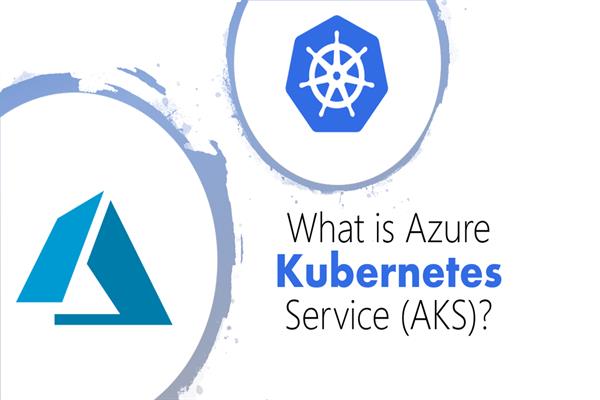What is Azure Kubernetes Service (AKS)?
Azure Kubernetes Service (AKS)

Azure Kubernetes Service (AKS) makes it easy to deploy a managed Kubernetes cluster in Azure, AKS. AKS reduces the complexity and operational overhead of managing Kubernetes by offloading quite a bit of that responsibility to Azure. As a hosted Kubernetes service, Azure handles critical tasks like health monitoring and maintenance for you. The Kubernetes masters are managed by Azure. you simply manage and maintain the agent nodes. As a managed Kubernetes service, AKS is free - you simply buy the agent nodes within your clusters, not for the masters.
You can create an AKS cluster within the Azure portal, with the Azure CLI, or template-driven deployment options like Resource Manager templates and Terraform. once you deploy an AKS cluster, the Kubernetes master and every one node are deployed and configured for you. Additional features like advanced networking, Azure Active Directory integration, and monitoring also can be configured during the deployment process. Windows Server containers are supported in AKS.
Access, security, and monitoring
For improved security and management, AKS allows you to integrate with Azure Active Directory and use Kubernetes role-based access controls. you'll also monitor the health of your cluster and resources.
Identity and security management
To limit access to the cluster resources, Azure Kubernetes Service supports Kubernetes role-based access control (RBAC). RBAC allows you to control access to Kubernetes resources and namespaces, and permissions to those resources. you'll also configure an AKS cluster to integrate with Azure Active Directory (AD). With Azure AD integration, Kubernetes access is often configured supported existing identity and group membership. Your existing Azure AD users and groups are often provided access to AKS resources and with an integrated sign-in experience.
Integrated logging and monitoring
To see how your Azure Kubernetes Service cluster and deployed applications are performing, Azure Monitor for container health collects memory and processor metrics from containers, nodes, and controllers. Container logs are available, and you'll also review the Kubernetes master logs. This monitoring data is stored in an Azure Log Analytics workspace and is out there through the Azure portal, Azure CLI, or a REST endpoint.
Clusters and nodes
AKS nodes run on Azure virtual machines. you'll connect storage to nodes and pods, upgrade cluster components, and use GPUs. Azure Kubernetes Service supports Kubernetes clusters that run multiple node pools to support mixed operating systems and Linux nodes run a customized Ubuntu OS image. Windows Server containers, and Windows Server nodes run a customized Windows Server 2019 OS image.
Cluster node and pod scaling
As demand for resources changes, the number of cluster nodes or pods that run your services can automatically proportion or down. you'll use both the horizontal pod auto scaler or the cluster auto scaler. This approach to scaling lets the Azure Kubernetes Service cluster automatically suits demands and only run the resources needed.
Cluster node upgrades
Azure Kubernetes Service offers multiple Kubernetes versions. As new versions become available in AKS, your cluster is often upgraded using the Azure portal or Azure CLI. During the upgrade process, nodes are carefully cordoned and drained to attenuate
GPU enabled nodes
Azure Kubernetes Service supports the creation of GPU enabled node pools. Azure currently provides single or multiple GPU enabled Virtual Machines. GPU enabled Virtual Machines are designed for compute-intensive, graphics-intensive, and visualization workloads.
For more information, see Using GPUs on AKS.
Storage volume support
To support application workloads, you'll mount storage volumes for persistent data. Both static and dynamic volumes are often used. counting on what percentage connected pods are to share the storage, you'll utilize storage backed by either Azure Disks for single pod access, or Azure Files for multiple concurrent pod access.
For more information, see Storage options for applications in Azure Kubernetes Service.
Docker image support and personal container registry
AKS supports the Docker image format. for personal storage of your Docker images, you'll integrate AKS with Azure Container Registry (ACR).
To create a private image store, see Azure Container Registry.
Kubernetes certification
Azure Kubernetes Service (AKS) has been CNCF certified as Kubernetes conformant.





